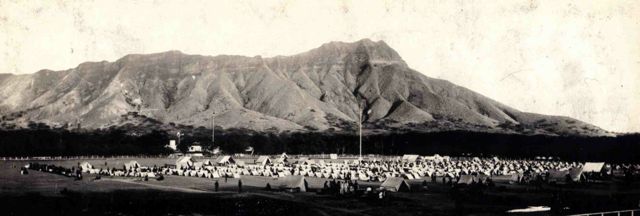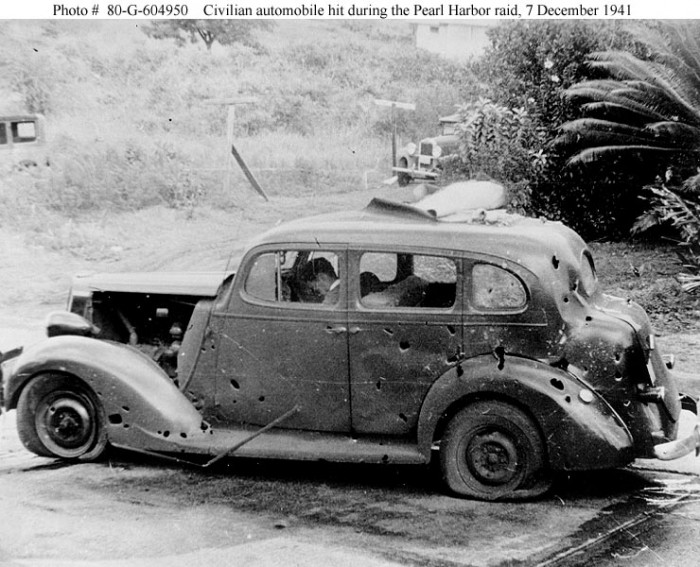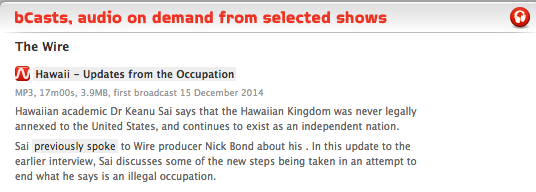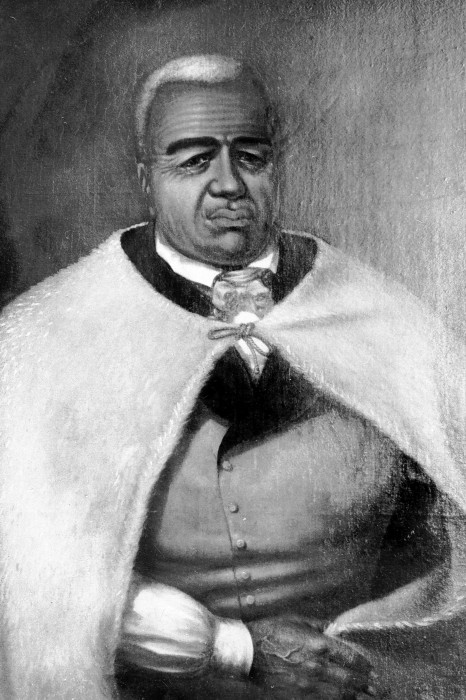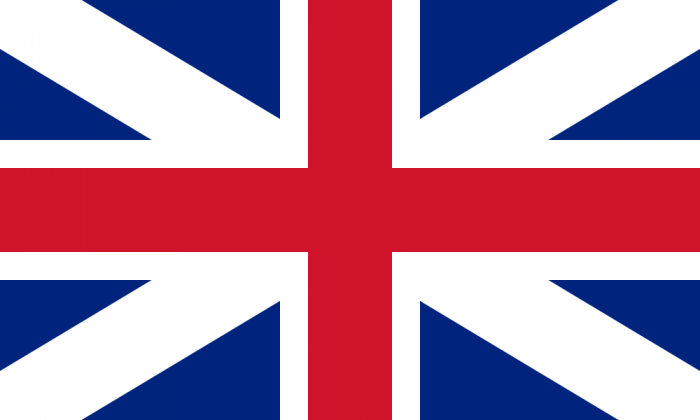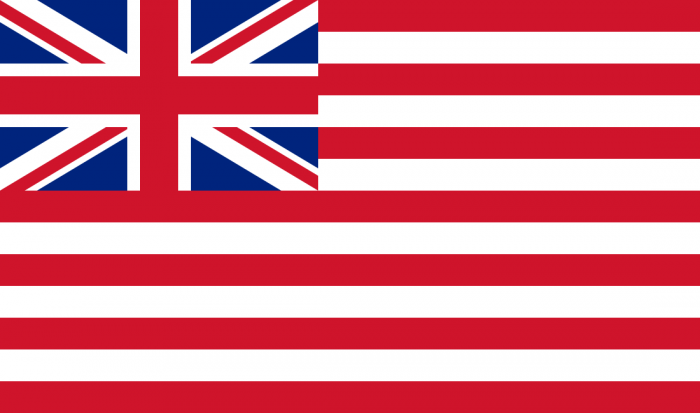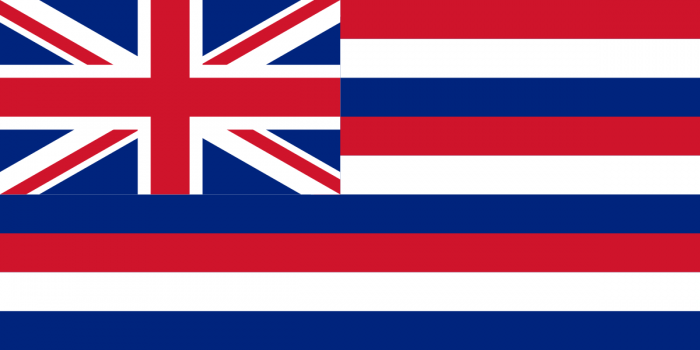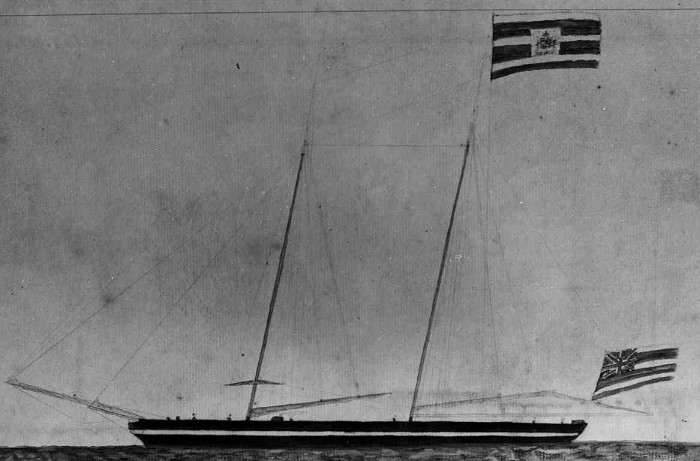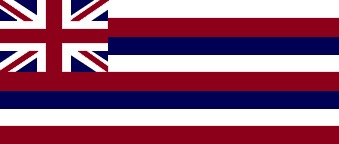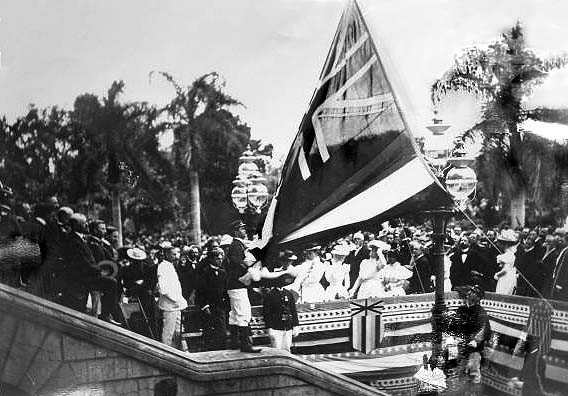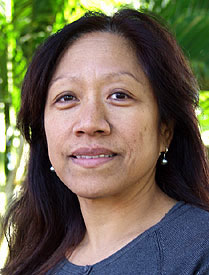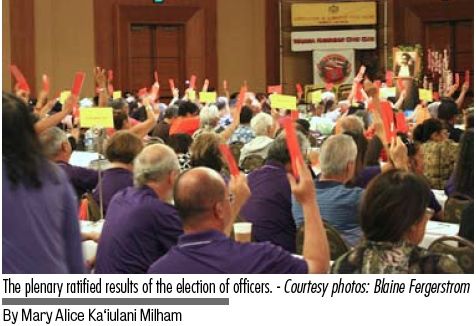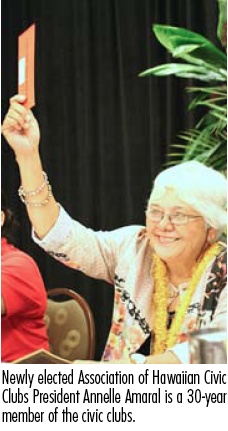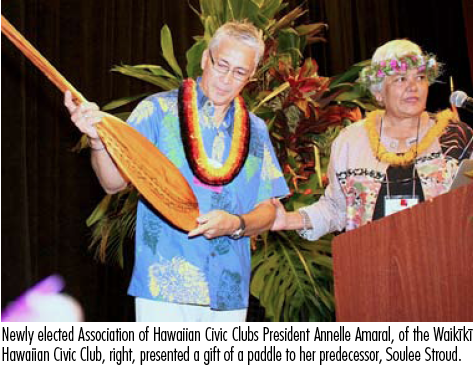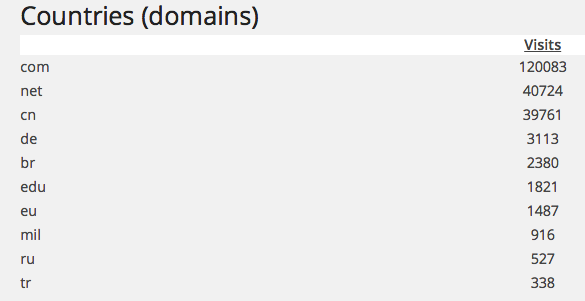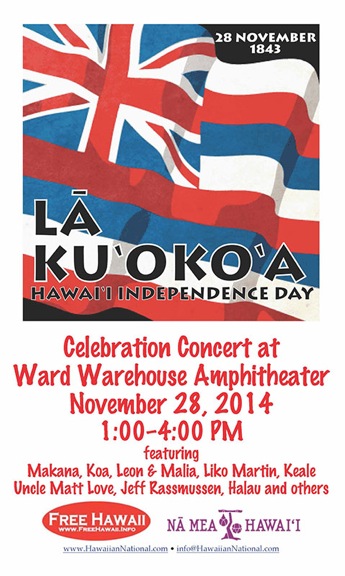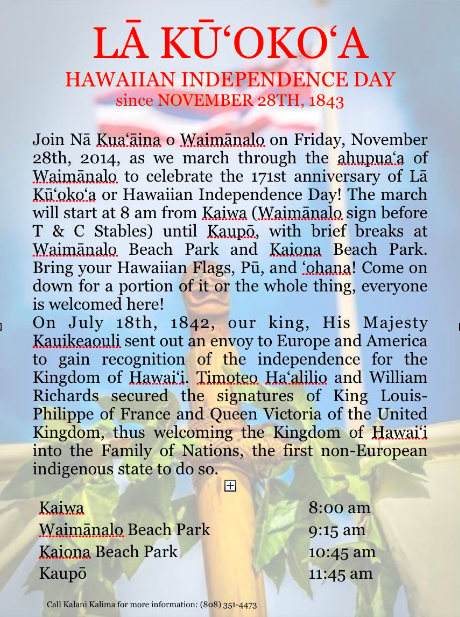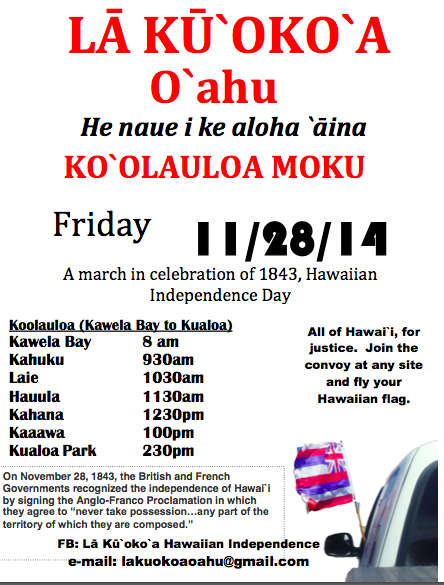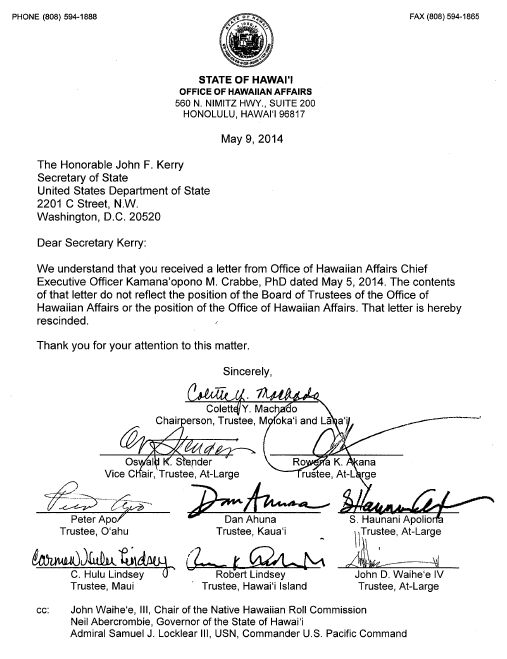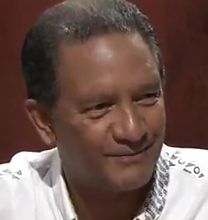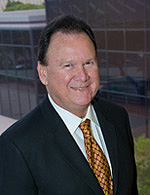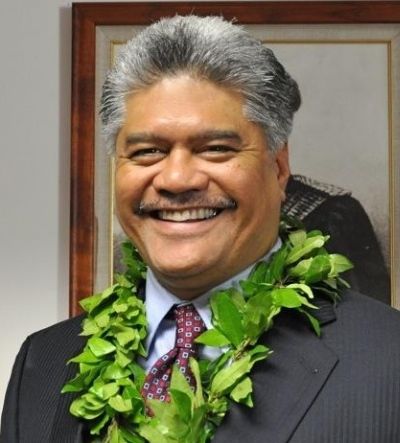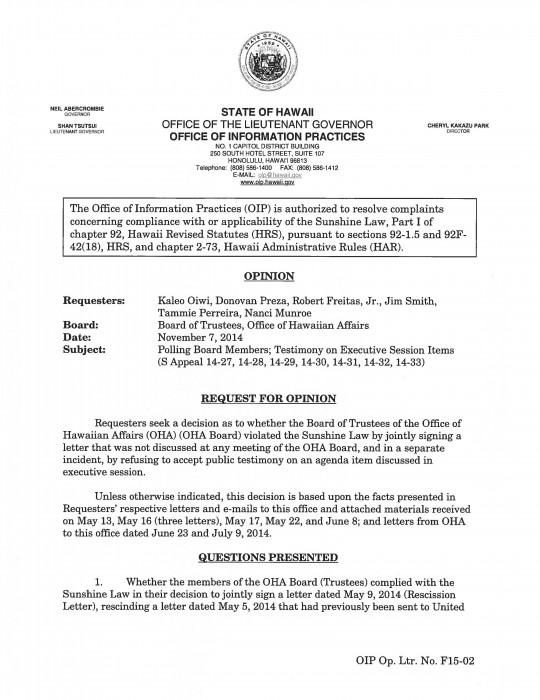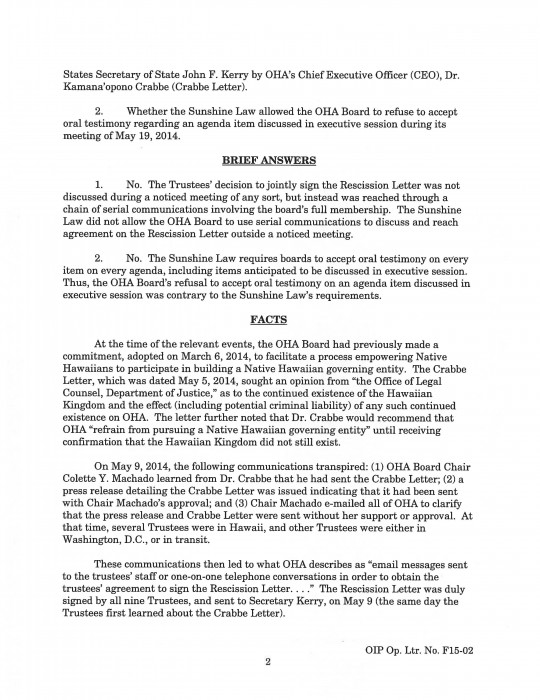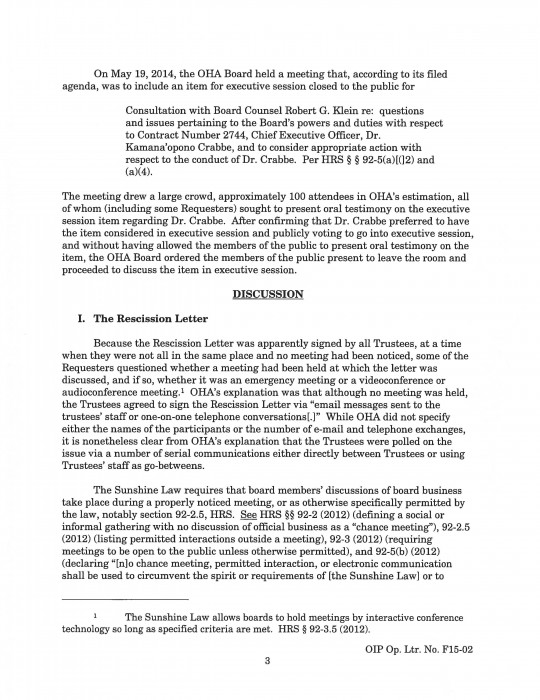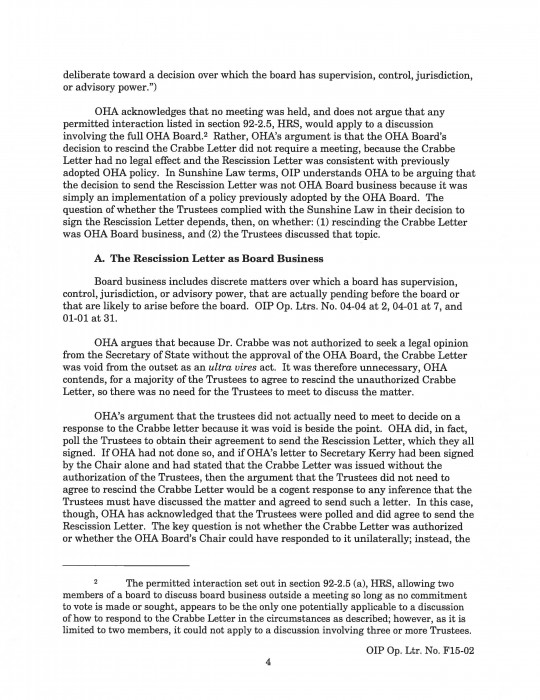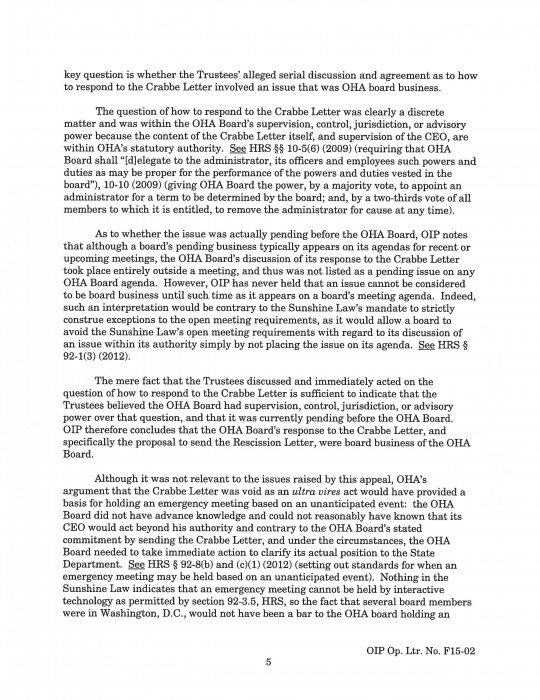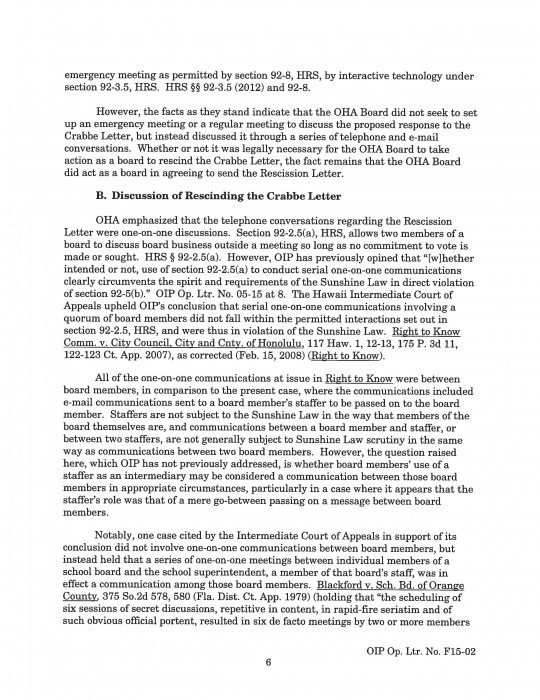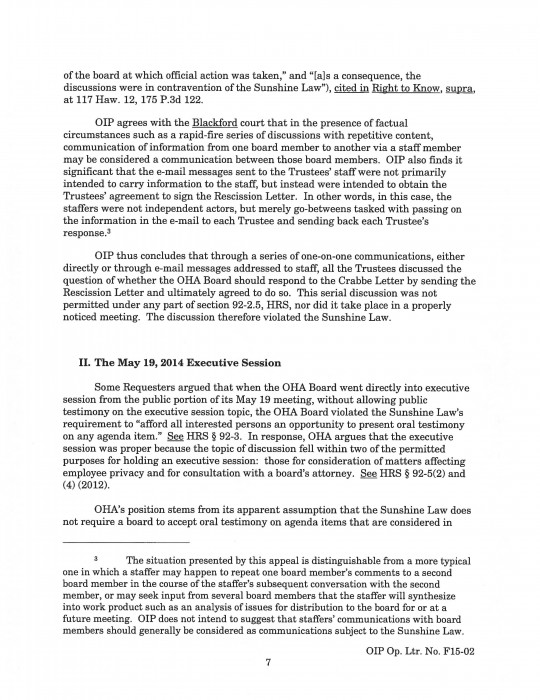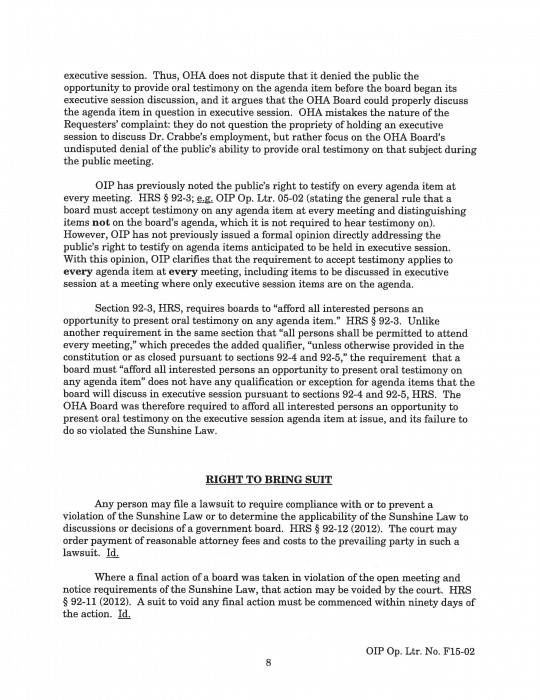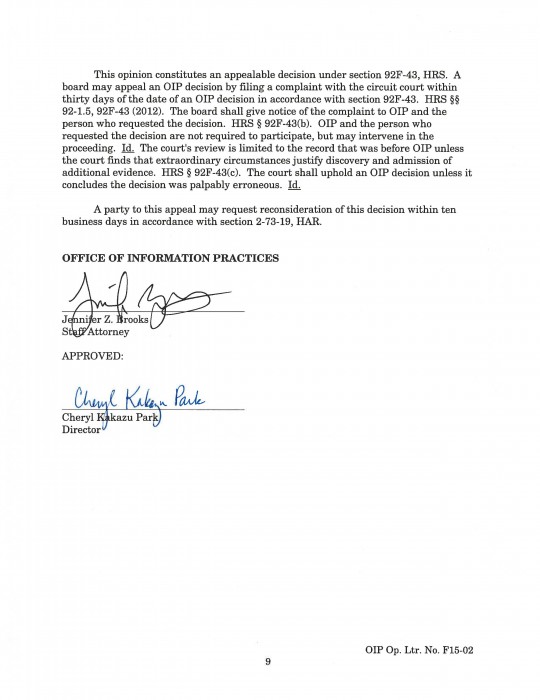Kale Gumapac and Nanci Munroe are interviewed by Dr. Lynette Cruz regarding the pillaging of his home and the commission of war crimes. Kale speaks to the issues first hand and shares his journey of knowledge and awareness of the history of his country to a victim of war crimes. Kale’s case was reported by his attorney Dexter Kaiama to the United States Pacific Command, the International Criminal Court, the Hawai‘i Police Department, and the Swiss Attorney General for prosecution.
https://vimeo.com/119603754
On December 12, 2005, Kale and his former wife took out a loan with Argent Mortgage Company, LLC, in the amount of $290,000.00. As security for the loan, the Gumapacs mortgaged their home property, which was recorded in the Bureau of Conveyances. The Gumapacs, as the mortgagor, assumed their title was free and clear as did Argent Mortgage Company, LLC, being the mortgagee of the title since it cleared escrow. As the mortgagee, Argent Mortgage Company, LLC, did not have title to the property, but only a lien. Title being vested in the Gumapacs as the mortgagor.
When the Gumapacs mortgaged their property in order to secure the repayment of the loan, they were required by Argent Mortgage Company, LLC, as a condition of the loan, to go to escrow, being Security Title Guaranty Corporation, to purchase a loan title insurance policy in the amount of $290,000.00 for the benefit of Argent Mortgage Company, LLC, should there be a defect in title, which would render the mortgage invalid. Many people confuse the terms mortgage and a promissory note, which is a loan, as if they are synonymous. In fact, a mortgage is a security instrument or collateral that secures the the promissory note, it is not a loan. So if a mortgage is invalid due to a defect in title, it does not release the borrower from the debt owed to the bank, which is, however, covered by the lender’s insurance policy the borrower purchased.
According to the loan policy the Gumapacs purchased at escrow on December 19, 2005, they paid a premium $1,050.00 for the policy with Argent Mortgage Company, LLC, as the named insured. The Gumapacs previously paid a premium of $660.00 for an owner’s title insurance policy for their protection against title defects on February 24, 2003 for a coverage of $178,000.00 from Title Guaranty Company. Deutsche Bank purchased the Gumapac’s mortgage and loan, which was included with other mortgages and loans in a mortgage-backed security. Along with the mortgage and loan, Deutsche Bank replaced Argent Mortgage Company, LLC, as the beneficiary of the loan title insurance policy.
According to Black’s Law Dictionary, 6th ed., title insurance is a “policy issued by a title company after searching the title, representing the state of that title and insuring the accuracy of its search against claims of title defects.” It is an indemnity contract that does not guarantee the state of the title but covers loss incurred from a defect in land titles that would arise from an inaccurate title report.
Below is a copy of the lender’s policy they purchased at escrow from Stewart Title Guaranty Company, being a Texas corporation. Both lender’s and owner’s title insurance policies provide the same coverage of risks to the title.
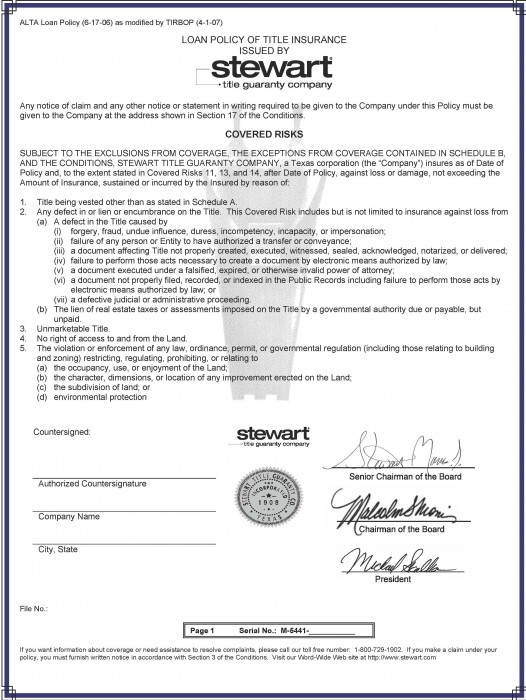
On January 21, 2011, Kale’s company Laulima Title Search and Claims, LLC, (LTSC) investigated the status of his fee-simple title that was acquired from the Linda Vivian Little and Alice Evelyn Little on April 17, 2002, and recorded in the Bureau of Conveyances. Kale is the owner of LTSC, which provides claims packages to be filed with title insurance companies under a lender’s and owner’s policy.
LTSC’s investigation identified defects in Kale’s fee-simple title that should have been disclosed in the title report done by Security Title Corporation, which they paid $468.75 at escrow and reflected in section 1100—Title Charges of the HUD Final Settlement Statement. The title report was the basis of the lender’s title insurance policy the Gumapacs purchased. Security Title Corporation and Title Guaranty Company, Inc., are fully aware that all land titles in the Hawaiian Islands originate in the year 1845 through Land Commission Awards and Royal Patents. It was also in 1845 that the Hawaiian legislature established notaries public and the Bureau of Conveyances. LTSC’s processor’s report was based on an expert memorandum Dr. Keanu Sai authored as a consultant to LTSC. The report summarized the defect by stating:
“This claim involves a defect of title by virtue of an executive agreement entered into between President Grover Cleveland of the United States and Queen Lili‘uokalani of the Hawaiian Kingdom, whereby the President and his successors in office were and continue to be bound to faithfully execute Hawaiian Kingdom law by assignment of the Queen under threat of war on January 17th 1893. The notaries public in the Hawaiian Islands and the registrar of the Bureau of Conveyances were not lawful since January 17th 1893, and therefore title to the estate in fee-simple described as Lot 2787, area 1.00 acre, more or less, Block 7, as shown on Map 58 filed in the Office of the Assistant Registrar of the Land Court of the State of Hawai`i with Land Court Application no. 1053 (amended) of W.H. Shipman, Limited, under document no. 2895104 & certificate no. 505052, filed with the Registrar of the Bureau of Conveyances on February 24th 2003, is vested other than Kale Kepekaio Gumapac and Dianne Dee Gumapac, now divorced, because the aforementioned deed of conveyance was not lawfully executed in compliance with Hawaiian Kingdom law.”
According to a United States presidential investigation into the illegal overthrow of the Hawaiian government, President Cleveland concluded in his message to Congress on December 18, 1893, that the so-called provisional government “was neither a government de facto nor de jure,” but self-declared (see page 453, Exhibit A of the memorandum). Additionally, the United States Congress in its 1993 joint resolution of apology for the illegal overthrow (Public Law 103-150) admitted that the provisional government’s successor was also self-declared. The resolution stated “Whereas, through the Newlands Resolution, the self-declared Republic of Hawaii ceded sovereignty over the Hawaiian Islands to the United States.” This preamble in the apology resolution is problematic because it conflates two problems—the first is that Congress by legislation has no effect beyond the borders of the United States, and, second, the so-called Republic was self-declared and therefore not a government, since by definition self-declared is defined as proclaimed or announced by oneself.
Since all titles in the Hawaiian Islands originated in 1845, the defective notaries and registrars of the Bureau of Conveyances after January 17, 1893, which were members of the self-declared provisional government and the Republic of Hawai‘i, are covered risks under section 2(a)(iii) and 2(a)(vi) of the lender’s title insurance the Gumapacs purchased to protect the lender. By letter to Deutsche Bank dated November 22, 2011, Kale demanded Deutsche Bank to file a loss of title claim with Stewart Title Insurance Company under the lender’s title insurance policy he purchased to protect the bank should their be a defect in title and consequently an invalid mortgage. Because Deutsche Bank was the beneficiary of the title insurance policy purchased by the Gumapacs, Deutsche Bank is supposed to file the insurance claim and not the Gumapacs.
Section 3 of the lender’s title insurance policy stated: “The Insured shall notify the Company promptly in writing…in case Knowledge shall come to an insured of any claim of title or interest that is adverse to the Title or the lien of the insured Mortgage, as insured, and that might cause loss or damage for which the Company may be liable by virtue of this policy… If the Company is prejudiced by the failure of the Insured Claimant to provide prompt notice, the Company’s liability to the Insured Claimant under the policy shall be reduced to the extent of the prejudice.”
Deutsche Bank who was represented by attorneys Charles Prather, Sofia Hirosone and Michael G.K. Wong of the law firm RCO Hawai‘i, LLLC, refused to file the claim and continued to proceed against Kale. These proceedings in the Third Circuit Court i in the city of Hilo, Island of Hawai‘i, constituted the war crime of denying Kale a fair trial as well as pillaging his home.
What many people may not know is that a title insurance policy does not insure the validity of the title, but only the accuracy of the title search that the title insurance underwrites. Only the grantor of the title, who in the case of the Gumapacs is Linda Vivian Little and Alice Evelyn Little, ensures that the title is valid under a warranty, not Deutsche Bank as the mortgagee or Stewart Title Guaranty Corporation who issued the policy. Again, the definition of title insurance, it is a “policy issued by a title company after searching the title, representing the state of that title and insuring the accuracy of its search against claims of title defects.”
The foreclosure process is a collection of a debt, and Kale has been consistent with his obligations in the repayment of that debt to Deutsche Bank. It is Deutsche Bank that did not comply with the contractual obligations. If Deutsche Bank filed an insurance claim, and the insurance company in their response provided clear evidence that the provisional government and the Republic of Hawai‘i were not self-declared, but lawful governments of Hawai‘i, then Deutsche Bank would be legally authorized, by virtue of the mortgage agreement, to carry out the eviction as a means by which a debt is being collected.
There was no lawful basis for Deutsche Bank to carry out the foreclosure and eviction if they were given due notice of the defect in the mortgagor’s title by Kale as the mortgagor, himself. As a mortgagee, Deutsche Bank can claim no better interest in the property than Kale, which is precisely why a lender’s title insurance policy was made a condition of the loan in the first place. What is for sure is that war crimes were committed against an innocent person by the following individuals who were reported to the U.S. Pacific Command, the International Criminal Court, the Hawai‘i Police Department, and the Swiss Attorney General:
- Judge Greg K. Nakamura, Circuit Court of the Third Circuit, State of Hawai‘i, whose address is Hale Kaulike, 777 Kilauea Avenue, Hilo, HI 96720-4212;
- Jürgen Fitschen, Co-Chief Executive Officer, Deutsche Bank Management Board, parent company of Deutsche Bank National Trust Company and Deutsche Bank Trust Company Americas, whose address is Taunusanlage 12, 60325 Frankfurt, Germany;
- Anshu Jain, Co-Chief Executive Officer, Deutsche Bank Management Board, parent company of Deutsche Bank National Trust Company and Deutsche Bank Trust Company Americas, whose address is Taunusanlage 12, 60325 Frankfurt, Germany;
- Stefan Krause, Chief Financial Officer, Deutsche Bank Management Board, parent company of Deutsche Bank National Trust Company and Deutsche Bank Trust Company Americas, whose address is Taunusanlage 12, 60325 Frankfurt, Germany;
- Stephan Leithner, Chief Executive Officer Europe (except Germany and UK), Human Resources, Legal & Compliance, Government and Regulatory Affairs, Deutsche Bank Management Board, parent company of Deutsche Bank National Trust Company and Deutsche Bank Trust Company Americas, whose address is Taunusanlage 12, 60325 Frankfurt, Germany;
- Stuart Lewis, Chief Risk Officer, Deutsche Bank Management Board, parent company of Deutsche Bank National Trust Company and Deutsche Bank Trust Company Americas, whose address is Taunusanlage 12, 60325 Frankfurt, Germany;
- Rainer Neske, Head of Private and Business Clients, Deutsche Bank Management Board, parent company of Deutsche Bank National Trust Company and Deutsche Bank Trust Company Americas, whose address is Taunusanlage 12, 60325 Frankfurt, Germany;
- Henry Ritchotte, Chief Operating Officer, Deutsche Bank Management Board, parent company of Deutsche Bank National Trust Company and Deutsche Bank Trust Company Americas, whose address is Taunusanlage 12, 60325 Frankfurt, Germany;
- Charles R. Prather, attorney for Deutsche Bank National Trust Company and Deutsche Bank Trust Company Americas, belonging to the law firm RCO Hawaii, LLLC, whose address is 900 Fort Street Mall, Suite 800, Honolulu, HI 96813;
- Sofia M. Hirosone, attorney for Deutsche Bank National Trust Company and Deutsche Bank Trust Company Americas, belonging to the law firm RCO Hawaii, LLLC, whose address is 900 Fort Street Mall, Suite 800, Honolulu, HI 96813;
- Michael G.K. Wong, attorney for Deutsche Bank National Trust Company and Deutsche Bank Trust Company Americas, belonging to the law firm RCO Hawaii, LLLC, whose address is 900 Fort Street Mall, Suite 800, Honolulu, HI 96813;
- Lieutenant Patrick Kawai, State of Hawai‘i Department of Public Safety Sheriff’s Department, to include his superiors and deputies, whose address is Hale Kaulike, 777 Kilauea Avenue, Hilo, HI 96720-4212;
- Police Chief Harry S. Kubojiri, County of Hawai‘i Police Department, whose address is 349 Kapiʻolani Street, Hilo, HI 96720;
- Detective Brian D. Prudencio, Office of Professional Standards, County of Hawai‘i Police Department, whose address is 349 Kapiʻolani Street, Hilo, HI 96720;
- Captain Samuel Kawamoto, County of Hawai‘i Police Department, whose address is 349 Kapiʻolani Street, Hilo, HI 96720; and
- Detective Derek Morimoto, County of Hawai‘i Police Department, whose address is 349 Kapiʻolani Street, Hilo, HI 96720.
Everyone who claims to own property in the Hawaiian Islands all have a defective title and consequently mortgages that are invalid. But everyone also purchased title insurance at escrow to protect the bank in case of a defective title, which pays off the debt the borrowers owe. The irony of this whole situation is that the above named perpetrators of war crimes assuredly have the same insurance policies Kale has if they currently have a mortgaged loan. These individuals have quickly moved from victims themselves to alleged war criminals who mistakenly thought that Kale was a sovereignty activist. Everyone should begin to read their escrow papers and they will find the very same documents that were at the center of the war crimes.



